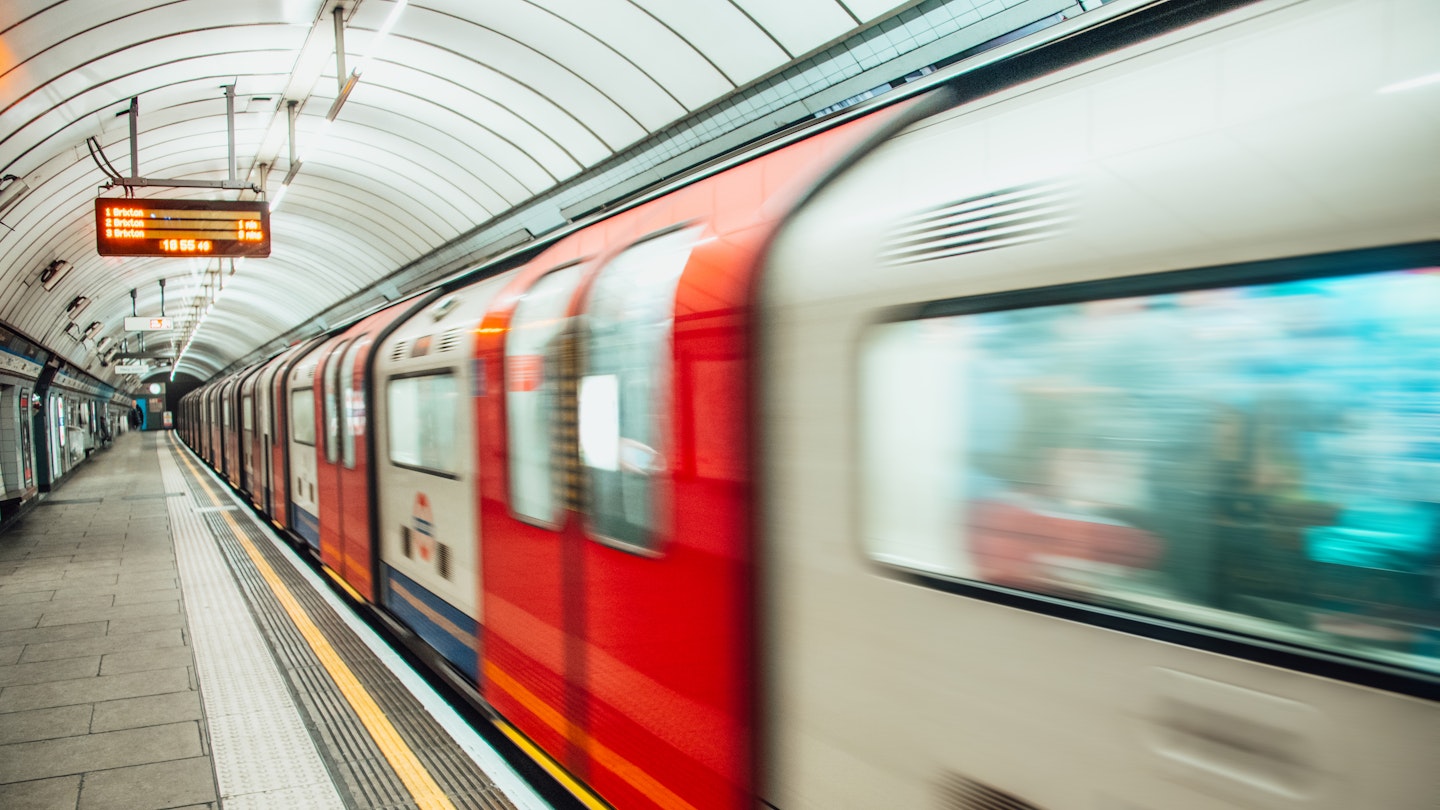The number of recorded sexual offences on trains and tubes has spiked by almost double in the past four years. According to figures from the mayor of London's office, reported London Underground attacks from gone from 844 in 2015-16 to 1,206 in 2018-19.
The increase in figures comes from efforts to encourage reporting by the British Transport Police (BTP), however campaigners are now warning that they should be focusing on stopping perpetrators in the first place.
'It’s not enough to just encourage the reporting of sexual harassment and assaults,' says Andrea Simon, the End Violence Against Women Coalition’s head of public affairs, 'alongside this we need to be proactively identifying offenders and stopping them,
'We know that those committing sexual offences will enter the transport system purposefully in order to commit those offences,' she continued, 'CCTV shows that they will move around the transport network looking for women to target, most often during the commuter rush hours when the tube network is busiest.'
According to Transport for London (TfL) incidents are more common in the day time, during rush hour when platforms and tubes are busier. Figures show that there have been 62 reported incidents of sexual assault on the night tube this year, around 5% of the year's total.
Of course, the fact that more people are comfortable reporting sexual offences on the tube is a good thing.
'We believe that sexual offences is something that largely goes unreported and we have worked with Transport for London, City of London Police and Metropolitan Police to launch a campaign called Report It To Stop It,' detective inspector David Udomhiaye from BTP says, 'This is a campaign encouraging anyone who experiences unwanted sexual behaviour on public transport to report it. This includes any form of behaviour that makes them feel uncomfortable – that could be rubbing, leering, sexual comments, indecent acts or more serious sexual assault.'
But the question now then is, what can be done to prevent those offences in the first place? It seems that more staff are needed on platforms and tubes to spot and stop sexual assaults. Given that the BTP is primarily funded by the rail industry - not the government - they are not subject to the same financial constraints as regular police whom are funded by the Home Office.
According to Siwan Hayward, TfL director of policing, there are 3,000 police and police community support officers dedicated to catching sex offenders on the tube.
'We take every report of unwanted sexual behaviour seriously and have specially trained officers to find those responsible,' Udomhiaya says, 'Thankfully, the rail network is CCTV rich and we use this extensive network of cameras to catch offenders and make it a hostile environment from perpetrators to operate.
'Importantly, we work tirelessly to combat sexual offences by running covert patrols on the Tube network with plain clothed officers,' he continues, 'These officers receive specialist training in behaviour detections and patrol crowded environments, looking for perpetrators.
'In addition to these proactive patrols, in 2013 we introduced a text message service 61016 providing passengers with a simple and discreet way to report offences. This has revolutionised the way sexual assault victims report crimes and we encourage victims to report incidents to us when they occur.'
These figures come after a 2017 report found that reported sexual offences had more than doubled. At the time we wrote...
Figures from the British Transport Police show that on public transport in England, Scotland and Wales, including the London Underground, there were 1,448 reported sexual offences in 2016/2017. This is a huge increase from the 650 reported incidents in 2012/2013.
Horrifically, the figures obtained in a freedom of information request by BBC Radio 5 Livealso show that the majority of assaults were on females aged from just 13 and above. On the London Underground, last year’s stats showed that a lot of the offences took place during rush hour, and were committed by sober men travelling to and from work.
The report is not conclusive on whether there have been more sexual assaults happening on public transport actually taking place, or whether it’s reflective of a better understanding of sexual offences - which could have resulted in more people are gaining the confidence to report their experiences of sexual assault to the police.
Co-director of the End Violence Against Women Coalition, Rachel Krys, tells the BBC that the increase shown in these figures do not necessarily mean that women are more at risk of sexual assault while on the train or tube than five years ago. She thinks that it may be a result of awareness and campaigns like the British Transport Police’s, ‘Report it to stop it’ campaign which aims to encourage victims of sexual violence to come forward in hopes that they bring these kinds of offenders to justice.
She said: ‘It is really important that these campaigns continue. When the scale of sexual violence is better understood, police forces take it more seriously and measures can be taken to reduce the risks to women and tackle perpetrators, who for too long had been acting with impunity.’
The campaign has been highly praised in its zero-tolerance stance on sexual assault and the support given to sexual assault victims – if you are on the underground or train and feel uncomfortable with somebody’s actions, you can text them in confidence on 61016. BTP are rightfully naming and shaming the perpetrators in attempt to deter others from committing sexual assault crimes on public transport – you can view them here.
Read More:
